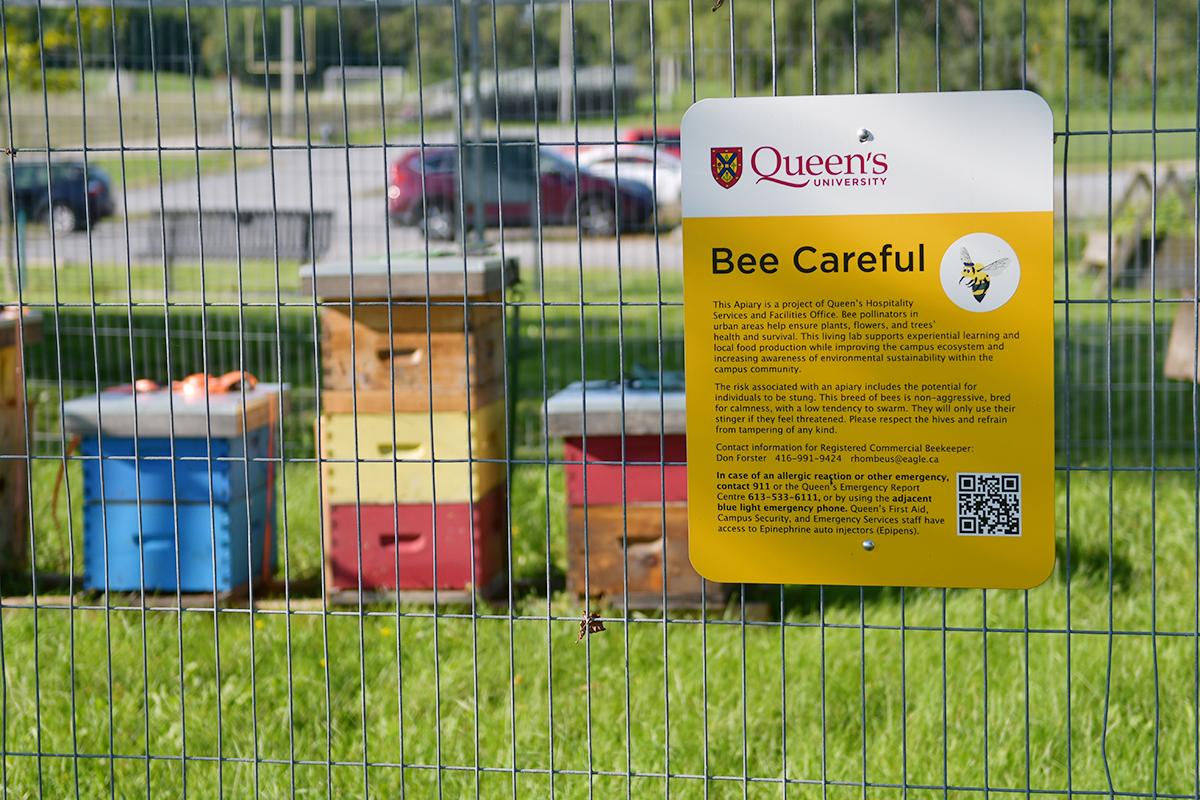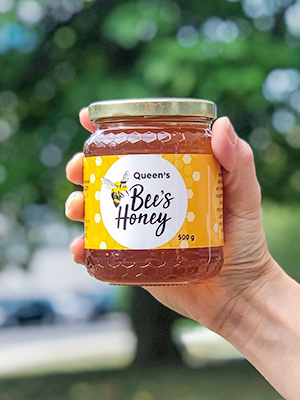New campus bee farm provides honey and supports the environment
September 9, 2022
Share

Queen’s University now has an apiary that is producing honey for the campus community, while promoting sustainability and local food production.
Queen’s Hospitality Services and Aramark, the university’s food service provider have partnered with Don Foster, a local registered commercial beekeeper, to set up a bee farm near Richardson Stadium.
 Beehives in urban areas can have a significant impact on the local ecosystem through pollination that promotes seed production, increases the survival of plants, flowers and trees, and by providing food for neighbouring animals. The apiary is managed by Foster and is a two-year pilot project. Student representatives on the Housing and Ancillary Services’ Sustainability Working Group provided input as part of the project development.
Beehives in urban areas can have a significant impact on the local ecosystem through pollination that promotes seed production, increases the survival of plants, flowers and trees, and by providing food for neighbouring animals. The apiary is managed by Foster and is a two-year pilot project. Student representatives on the Housing and Ancillary Services’ Sustainability Working Group provided input as part of the project development.
“This is an exciting opportunity for us at Queen’s,” says Theresa Couto, Registered Dietitian and Sustainability Manager for Hospitality Services. “I’ve already gained an even greater appreciation for bees and their role in our ecosystem. I look forward to seeing all that this project contributes to the campus community.”
The four hives house an estimated 240,000 bees and are projected to produce approximately 500 pounds of honey this harvesting season, which has already begun.
The installation of beehives on campus aligns with United Nations Sustainable Development Goals 2, 11, 12, and 15 by encouraging the repopulation of an important endangered insect, supporting sustainable food sources, and protecting plant and animal diversity.
Queen’s Bee's Honey will be used across Hospitality Services’ food operations, including campus dining halls and catering services. A retail supply will be available for sale in a number of retail food locations on campus, and online through Campus Market. Signs noting the honey’s source and the bee farm’s impact on the local environment will be posted in all locations.
The apiary bee is non-aggressive and bred for calmness, with a low tendency to swarm. The farm is not open to the public and access is managed and led by the professional beekeeper. While the risk of anyone being stung by an apiary bee is low, anyone who experiences an allergic reaction to any sting should call 911 or the Queen’s Emergency Report Centre at 613-533-6111. There is also a blue light emergency phone near Richardson Stadium.
To learn more about the Bee Farm Pilot Project, visit the Queen’s Hospitality Services website here.